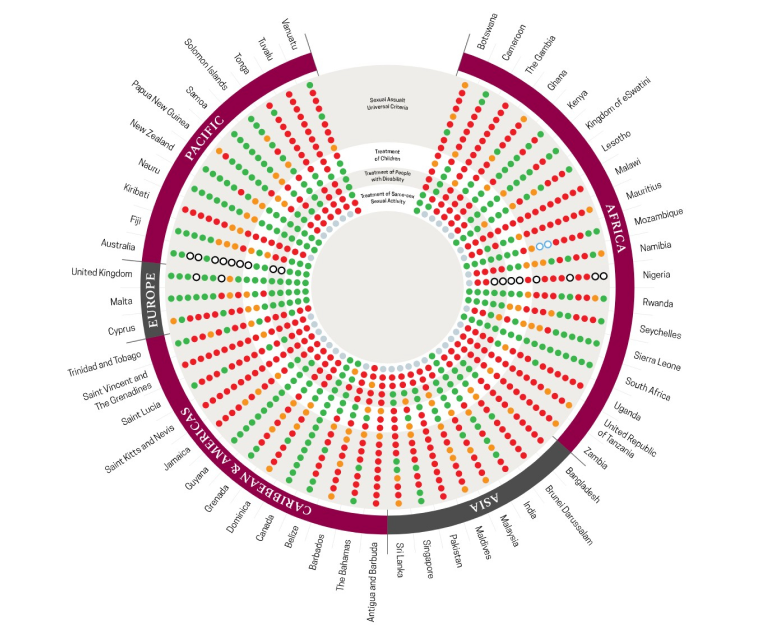This report is part of a research series commissioned by the Human Dignity Trust on behalf of the Equality & Justice Alliance, as part of a 2-year programme announced by the UK Government in April 2018.
A core focus of the 2-year programme was support for reform of colonial-era sexual offences laws that discriminate against women and girls and LGBT+ people, among others. As part of that support, the Trust—with the assistance of experts from around the Commonwealth—produced research and information designed to inform, inspire and assist Commonwealth governments that are considering embarking on reform of these laws. The research was Commonwealth-focused enabling member states to learn from other countries in the Commonwealth that have already successfully undertaken reforms.
The research series, concluding in 2020, builds on previous research commissioned by the Human Dignity Trust on good practice, human rights compliant sexual offences laws in the Commonwealth. It assesses this legislation in all fifty-three members of the Commonwealth against a series of criteria in the following areas of law: sexual assault; child sexual assault; disability and sexual offences; and, consensual same-sex sexual activity.
The report is divided into three parts. Part A provides the overview and background to the research. Part B describes and briefly explains the good practice criteria used in the study. Part C contains brief country reports and a checklist chart for every Commonwealth country in the Pacific. It also contains a comparative chart for the Pacific as a whole.
This report specifically outlines the situation in the Pacific region. The Pacific region of the Commonwealth comprises 11 countries. Approximately half of the countries in the Pacific have overhauled their sexual offences laws, introducing new legal regimes that meet many of the good practice standards applied in this report. Five countries in the region have decriminalised consensual same-sex sexual activity (Australia, Fiji, Nauru, New Zealand and Vanuatu). Some countries retain sexual offences laws that do not meet good practice and are outdated and discriminatory in a number of respects. Part C of the report analyses the landscape in individual Commonwealth countries in the region against the good practice criteria.
This report is intended primarily for use by government officials interested in reforming their country’s sexual offences laws, law reform commissioners and experts, and advocates seeking reform in their country or region. Those working on sexual offences law reform in their country can use this report as a starting point in the law reform process.
Download the report



